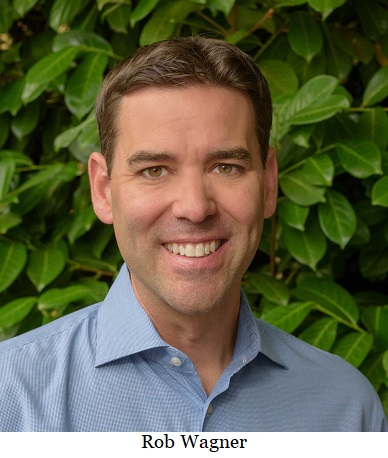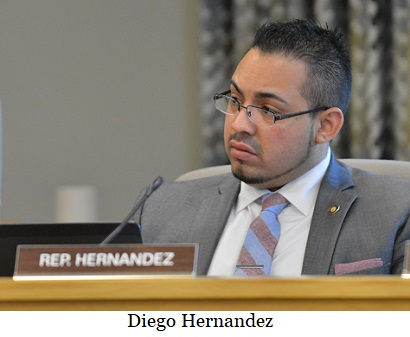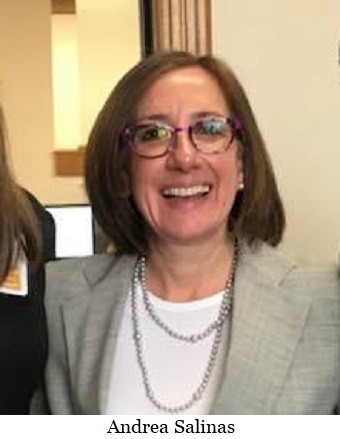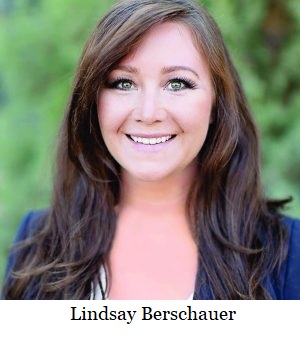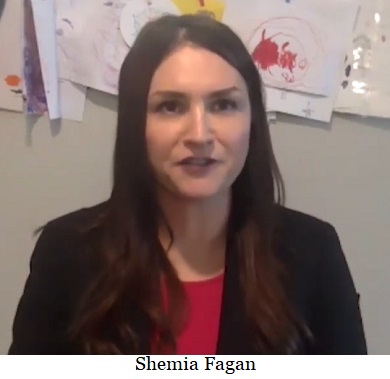 Post an Event
Post an Event
| Benton County Republicans’ Private Fundraising Event, “Bent-on Boots and Bling” with Trey Taylor |
| Friday, September 5, 2025 at 5:00 pm |
| Featuring Trey Taylor
Music Private Event
Friday, September 5, 2025 5:00-5:30 pm VIP Reception
5:30-8:00 pm Heavy Appetizers,
Auction, Concert
Red: $750 VIP Reception
Front Row Table Sponsor
White: $500 Table Sponsor
Blue: $50 per person
Limited Seating. Get Yours Now!!!
Support Local
Dress up: Bling, Cowboy, Patriotic Benton County Republican
FUNDRAISER
www.BentonGOP.org
Get your tickets today at:
https://www.bentongop.org/event-details/benton-county-republicans-fundraiser/form
About Trey:
Trey is the youngest African American Man in Country Music History. The Denver Post wrote
"It's impossible to miss his enthusiasm. With a fondness for cowboy boots, gaudy colors and dazzling jewelry, Trey Taylor could stand toe to toe with any of the Pop, Country or even Rap
contemporaries of his generation.“ |
| Trysting Tree Golf Club, 34028 NE Electric Rd., Corvallis |
“There is simply no alternative to transporting these goodsâ€
HB 3305 was introduced this week and caught many in the legislature off guard. Introduced by Representative Karin Power (D-Milwaukie), the bill looks to remove access to Diesel in Oregon by 2028, virtually turning all vehicles today that run on diesel into scrap metal.
Just two years ago, Representative Powers worked across the aisle with Representative Shelly Boshart-Davis (R-Albany) to find a solution for reducing the amount of Heavy use vehicles in the state that rely on Diesel. Now, Representative Powers seems to want to take the most extreme measure and eliminate all diesel powered vehicles in the state by eliminating their access to fuel.
In a press release from the House Republican officer. Representative Boshart-Davis voiced her concerns.
“I’m not sure where to begin with this bill,†said Representative Boshart Davis (R-Albany). “Our entire economy depends on the free flow of freight by both truck and rail, nearly all of which is powered by diesel engines. There is simply no commercially available, cost-effective alternative to transporting these goods. Of course, the impacts of this bill go well beyond just trucking and freight and would destroy any and every industry that relies on heavy equipment, render tens-of-thousands of personal vehicles inoperable, and put countless Oregonians out of work. Not only was this bill blindsiding, I am also disturbed to see such a blatant attack on working Oregonians.â€
Under
HB 3305, retail dealers, nonretail dealers or wholesale dealers of diesel fuel would be prohibited from selling the fuel in accordance with the following schedule:
- January 1, 2024, nonretail dealers located in Clackamas, Washington or Multnomah County.
- January 1, 2025, retail dealer located in Clackamas, Washington.
- January 1, 2027, nonretail dealer is located anywhere in this state.
A D V E R T I S E M E N T

A D V E R T I S E M E N T
- January 1, 2028, retail dealer is located anywhere in this state.
Representative Boshart-Davis was joined in her concerns by Representative Vicki Breese-Iverson (R-Prineville). “There is absolutely no way we can implement this legislation in accordance to these timelines without extreme disruption to Oregonians’ daily lives and the obliteration of our economy as we know it. The supermajority has put agenda over people and our economy. If enacted, Oregonians could no longer rely on everyday goods like food, groceries and medicine being readily availableâ€.
The bill has not been referred to a committee, but will most likely end up in House Environment and Energy.
--Terese Humboldt| Post Date: 2021-03-03 14:46:22 | Last Update: 2021-03-07 08:15:01 |
Seeks to fill a hole in our curriculum that frankly does not exist
Editor's note: This article first appeared as a blog post on the Oregonians for Liberty in Education website.
Oregon Sen. Wagner and Sen. Frederick are sponsoring
SB 683, which “requires school districts to provide instruction on racist history of this country and state.†The language in the bill seems to blindly copy the premises of the widely debunked New York Times 1619 Project. If enacted, this bill would mandate the statewide adoption of a 1619 Project-type curriculum for all K-12 Oregon public school students.
This bill characterizes the overarching theme of Oregon and U.S. History as racist. It would require all history to be taught through an oppressed/oppressor racial lens. It would require a radical overhaul of the 5th Grade Oregon Trail Unit to characterize all pioneers as motivated chiefly by racism. This bill describes racism and slavery as foundational to the state and country’s law, economy, justice system, and government.
Proponents of the bill argue that “by knowing and understanding our past can we learn from our mistakes and build a better future.â€
But learning from our past is impossible without context, perspective, and factual accuracy, all of which are missing from this bill and the curriculum that it copies from. James McPherson, past president of the American Historical Association, had this to say about the 1619 Project: “I was disturbed by what seemed like a very unbalanced, one-sided account, which lacked context and perspective.â€
What Does This Solve? This bill seeks to fill a hole in our curriculum that frankly does not exist. We do not need additional legislation to ensure that slavery and racist history are taught in Oregon public schools. Current state standards adopted in 2018 include multiple learning targets on slavery, oppression, marginalized people, and civil rights.
The Oregon Department of Education’s most recent Social Science Newsletter highlights the plethora of resources available to teachers on these topics, including radical materials from the Southern Poverty Law Center. In Oregon’s K-5 classrooms, social studies curriculum is primarily Native American history and Black history/civil rights. Slavery, oppression and activism are covered extensively in 8th grade and in high school U.S. History/American Studies classes.
According to the 1776 Commission report, educating citizens requires that students be taught “the principles that unite, inspire, and ennoble all Americans†which can “coexist with the elements of disappointment, criticism, dissent, opposition, and even shame.†“By studying America's true heritage, students learn to embrace and preserve the triumphs of their forefathers while identifying and avoiding their mistakes.â€
A D V E R T I S E M E N T

A D V E R T I S E M E N T
SB 683 runs counter to these goals, and in fact many of the goals found in Oregon’s state standards for civics instruction. This bill is divisive and rooted in critical theory. Its intent isn’t the teaching of history, but rather the teaching of grievance-mindedness and activism.
So what is the real goal of this legislation? 1619 Project author Nicole Hannah-Jones has said, “my ultimate goal is that there’ll be a reparations bill passed.†The co-sponsor of
SB 683, Sen. Fredrick, has also sponsored an Oregon reparations bill this legislative session,
SB 619.
Do we need more curriculum mandates from Salem legislators? Social studies curriculum decisions should be made by historians and teachers. And school districts should have local authority to select appropriate materials for their communities.
--Mary Miller| Post Date: 2021-03-03 09:33:26 | Last Update: 2021-03-03 09:42:56 |
Lindsey Graham expresses gratitude to Governor Kate Brown
On Wednesday, March 3, Oregon salon owner Lindsey Graham speaks out, following national media attention that began when
Graham defied Oregon Governor Kate Brown, in order to avoid total economic devastation for the families, including her own, that her salon supports through the professional services provided. The Nation watched as Graham was wrongfully, financially and politically targeted by the full force of the State--
"I'm grateful for this trial by fire, as all doubts have now been removed and a veil lifted. While pursuing me as a political adversary, Kate Brown has inadvertently provided a platform for my beliefs, a larger voice, and a new perspective. With the realization that there are thousands of other small business owners in Oregon and across the nation that share these beliefs, I thank God for Brown, and all of her blue blooded cronies and connoisseurs of cancel-culture. This culture is cultivating a new wave of collaboration between those who are speaking out despite clear efforts to silence us. These challenges are only making us stronger and secure in our understanding of good governance versus governance through tyrannical control."
The closure of Glamour leaves a multi-million dollar hole in annual tax revenue for the State, while adding twenty-five new recipients to unemployment benefits, EBT and Medicaid. That's twenty-five less women in the workforce and gainfully employed. While disgusted with the unchecked, unregulated and state sanctioned harassment, threats, bullying and gang stalking by leftist cancel culture, Graham feels a sense of personal gratitude for the experience, additionally releasing the following statement;
"The feminist in me is outraged, but the spirit of Christ within me is overjoyed. What was meant for my destruction has been turned into the greatest blessing, overcoming adversity, new opportunities have been created for myself and my family. I'm grateful that Oregon's supermajority has made it next to impossible for businesses to operate, I'm grateful that Kate Brown sent DHS/CPS after my children, I'm grateful to Oregon's blatant cancel-culture and the seemingly hate-filled social justice warriors.
A D V E R T I S E M E N T

A D V E R T I S E M E N T
My eyes are now fully opened to the crystal clear line in the sand, and there's no going back. Hatred is the tool of oppressors and a type of mental servitude. While I was shocked at the obvious targeting and unprofessional use of tyrannical force employed by Kate Brown's apparent dictatorship, I have nothing but love and gratitude in my heart, as I absolutely refuse to be bound by hatred or struggle. Glamour Salon is closing, our family has moved out of Oregon to a deep red land of economic opportunity, and I have nothing left to lose.
Kate Brown gave me a voice and a platform, and I intend to use it, as are the countless other small business owners who’ve stepped into the cold reality Brown created by allowing large businesses to operate while keeping family-owned and main street businesses shuttered, beyond a timeline that was feasible for survival. I pray that those still trying to run small businesses in Oregon can survive and those placing burdens upon these businesses stop turning a blind eye to the politics they are playing with these people’s lives and livelihoods. You can certainly expect to see big things coming from me soon, as this fire has forged new strength in me that I didn’t know existed.â€
--Staff Reports| Post Date: 2021-03-03 08:24:00 | Last Update: 2021-03-03 08:39:30 |
Inmates considered Phase 1A eligible
Oregon's Governor Kate Brown has announced the prioritization for the next groups of Oregonians to be included in Oregon’s COVID-19 vaccine distribution schedule.
"By summer, provided supplies from the federal government continue as planned, any Oregonian who wants the vaccine will be eligible to receive it," said Governor Brown.
"Infection rates continue to plummet here in Oregon and across the country."
"Keep wearing your masks, physical distancing and limiting social gatherings."
Phase 1b, Phase 2 Vaccine Prioritization
Oregon’s Phase 1b prioritization schedule was based on the recommendations of the members of the
Vaccine Advisory Committee, with the goal of ensuring equitable distribution of vaccines to those communities disproportionately impacted by COVID-19, including Black, Indigenous, Latino, Latina, and Latinx, Pacific Islander, and Tribal communities.
The VAC recommended prioritizing Oregonians with underlying conditions and frontline workers for vaccination.
Until March 29, Oregon will continue to vaccinate individuals only Oregon seniors, educators, inmates, and any individuals eligible in Phase 1a still remaining.
The vaccination of Oregonians for the continuation of Phase 1b will proceed in two waves.
Beginning March 29, the following groups of Oregonians will be eligible for vaccination:
- Adults age 45 to 64 with underlying health conditions as defined by the CDC
- Seasonally-impacted frontline workers, such as migrant seasonal farm workers, seafood and agricultural workers, and food processing workers
- Currently displaced victims of the September 2020 wildfires
- Wildland firefighters
- People living in low-income and congregate senior housing
- Individuals experiencing houselessness
No later than May 1, the following groups of Oregonians will be eligible:
- All other frontline workers as defined by the CDC
- Individuals age 16-45 with underlying health conditions
- Multigenerational household members
No later than June 1, Phase 2 of vaccination will begin with all adults aged 45 to 64. And, no later than July 1, all Oregonians 16 and over will be eligible to receive a vaccine.
--Bruce Armstrong| Post Date: 2021-03-02 20:40:47 | Last Update: 2021-03-02 21:19:04 |
Sounds similar to emission reduction goals.
When a half page bill is turned into a 93-page amendment an alert should go up. An amendment doesn’t get the public notice and opportunity to testify as a bill does. The -1 amendment to
SB 582 is an attack on free markets. Taxes and fees on foods have typically been a taboo. Legislators have still found ways to get around it by taxing the production and transportation systems. Northwest Observer wrote on
Extended Producer Liability warning it would show up in bills, but this is an all-encompassing step to control everything we purchase by making the producer responsible for recycling.
Senator Michael Dembrow (D-Portland) introduced
SB 582 and serves on the Senate Committee on Energy and Environment that authored -1 amendments. It requires producers or co-producers to register with and be a member of a Producer Responsibility Organization that administers a producer responsibility program and provide records of tracking. Producers include sellers of products, packaging, manufacturing, importers, shippers, and persons distributing printed material, which may require membership in several organizations. If a Producer is in violation of labeling a recycling symbol, they cannot register with a Producer Responsibility Organization and therefore cannot do business in Oregon.
The Department of Environmental Quality approves or may revise the producer responsibility program plan, and reimburses expenses of local government service providers for eligible costs for transporting recycling. If no recycling transportation available, they must establish recycling events or drop centers.
Buried in local government responsibilities is state controls requiring that when providing a recycle program it must include all materials on the statewide collection list along with requirements for collection space and service standards. It also requires that a service processor ensures the health, safety and wellness of workers at the facility regardless of whether the workers are employees, independent contractors or employees of another business, which insulted the recyclers in the hearing.
Failing to consult with manufactures using recycled materials, they missed an opportunity to utilize recyclable materials. Pak Tech is an Oregon Corporation focused on manufacturing market that demands products are made from 100% recycled materials (rHDPE) and ending up with a product that itself is 100% recyclable. However, they claim that Oregon lacks proper recycling of milk containers they use so they import from California and Canada to make their products. In 2020 alone, they utilized over 22 million pounds of rHDPE (equivalent of over 165 million milk containers) in creating recycled products shipped around the world. However, the proposed program isn’t interested in waste reuse by for-profit businesses and focuses on public bodies, and nonprofits.
A D V E R T I S E M E N T

A D V E R T I S E M E N T
Senator Art Robinson mentioned three paths for recycling, first it goes directly to a landfill that works its way into heat and carbon dioxide over time, the second way is to make a product out of recycling materials that eventually ends up in the landfill and into heat and carbon dioxide. The third way is to produce energy and you end up with electricity out of the bargain, which the state could sell for profits. Oregon only has one, so investment in more garbage burning plants could answer more than recycling questions.
SB 582 -1 amendment also creates a litter and marine debris cleanup and prevention program requiring producer responsibility organization to issue grants to the tone of $10 million per year. There are of course fees for everything including certification and permits, and it allows for legislative appropriations to two funds: Producer Responsibility Fund and Waste Prevention and Reuse Fund.
The bill establishes within the Department of Environmental Quality, the Oregon Recycling System Advisory Council compensated to administer and enforce the program. The DEQ is required to establish recycling contamination reduction goals. Sounds similar to emission reduction goals.
Senator Michael Dembrow suggested that industry is forcing this action, but he was pushed back by several industries testifying with robust programs that were not invited to the discussions until very late in the process or not at all. The food industry said they weren’t consulted at all and it would cost them millions that would have to be past to consumers. This seems to be the norm for leadership to not invite stakeholders until the path is laid. Recycling and taking care of our surroundings is a good thing, but is it the job of government to micromanage our lives and not give the free market the responsibility?
--Donna Bleiler| Post Date: 2021-03-02 19:10:04 | Last Update: 2021-03-02 19:24:00 |
The absence of Rep. Hernandez leaves the process temporarily in peril
In a move designed to keep things moving in the Legislature, House Speaker has removed embattled, lame-duck State Representative Diego from his legislative committees and replaced him with the House Majority Leader, Representative Barbara Smith Warner -- or in the case of the House Energy and Environment Committee, she has appointed herself to the committee.
In the case of the Energy and Environment Committee, without Hernandez, the committee would have an even 3-3 partisan representation, so the Democrats could not be sure of passing their legislation out of committee.
The other committees are the House Committees on General Government and Revenue. Each of these committees would have an even partisan representation without Representative Hernandez. He was also replaced on the Joint Committee on Tax Expenditures. All of these committee appointments have been marked as "temporary" and once Hernandez's successor is appointed, that person will either take his place or possibly further shuffling of committee assignments will occur.
The Democratic Party of Oregon is working on nominees for his replacement. The have said that
they will have a list of nominees by March 15. From that list, the Multnomah County Commissioners will pick the next State Representative for House District 47.
--Staff Reports| Post Date: 2021-03-02 16:27:30 | Last Update: 2021-03-02 16:28:36 |
Racial equity in the Portland area may not be the same in Harney County
During the past year, state agencies have taken extraordinary steps in the name of public health and safety. They have done this through implementation of Oregon Administrative Rules rather than by changing laws or Oregon Revised Statutes. Laws are only enacted by the Oregon legislature.
An Administrative Rule is defined as "any agency directive, standard, regulation or statement of general applicability that implements, interprets or prescribes law or policy, or describes the procedure or practice requirements of any agency".
There are a couple types of rules, Statutory Minor Corrections, Temporary Rules, and Permanent Rules.
- Statutory minor correction rules are things like spelling, agency or program name change, correcting address or contact number, etc. They do not change the intent or the action of the rule. (OAR 166-500-0047).
- Temporary rules are done to temporarily adopt new rules, amend or suspend existing rules and can only remain in effect no longer than 180 days. (OAR 166-500-0050).
- Permanent rules are done to adopt new rules, amend or repeal existing rules, or renumber an existing rule to a new number and has no automatic expiration. (OAR 166-500-0040).
The Oregon Liquor Control Commission in one of the state agencies that wrote temporary rules over the last year in the name of COVID-19 and in response to some of the Governors Executive Orders trying to soften the blow to the bar and restaurant industry.
At the beginning of the COVID-19 crisis, the Governor issued
Executive Order 20-07 closing all bars and restaurants effective March 17, 2020. It remained in effect till May 14th when she announced a “phased in approach†with
Executive Order 20-27. As restaurants throughout the state struggled and made individual choices to remain closed, offer take out, or attempt to re-open, little did they know the next wave was about to hit them. With Executive Order 20-65 the Governor once again closed bars and restaurants on November 18th.
However, by Administrative Rule, OLCC delivered a Christmas Eve gift to them. They passed a temporary rule allowing the sale of Mixed Drinks and Single Servings of Wine by Full On-Premises Sales Licensees for Off-Premises Consumption and Delivery. Otherwise know and “booze to goâ€. The OAR is in effect until June 22, 2021. OLCC saw this as a lifeline to bars and restaurants. In ac2352tuality it did little to bolster sales compared to actually being reopened which for most businesses would not happen until February 2021 or later with the Governor’s next Executive Order, 20-66 which set out to design a framed reopening approach with a sector risk level guideline administered county by county.
Now the Oregon Legislature is looking to add another layer to the Administrative rule making process. A proposal that could have stopped the OLCC “alcohol to go†lifeline dead in its tracks.
HB 2353, introduced by Representative Salinas (HD38-Lake Oswego) would require State Agencies to include in their rulemaking notice a statement identifying how adoption of rule will affect racial equity.
A D V E R T I S E M E N T

A D V E R T I S E M E N T
What if
HB 2353 had been in place for the OLCC rule was proposed? What could the possible affects have been on racial equity by implementing the rule? Could minority owned restaurants and bars have been adversely affected because of the additional cost of implementing the alcohol to-go options? Would they then have been negatively affected by other non-minority owned businesses in the area that could afford added costs? Then again, maybe the opposite statement could be said. Minority owed bars and restaurants could potentially have a lower overhead on their food items and therefore they could absorb the additional cost for the to go beverages. Where non-minority owned businesses might have a slimmer profit margin on their menu items and could not afford to offer the to-go cost of the alcohol items. Therefore, they would be at a racial disadvantage. Introducing racial equity questions without solid data to back up claims is a poor approach when setting Administrative rules. In addition, Administrative rules are primarily statewide and what is perceived as racial equity in the Portland Metro area may not be seen the same in Harney County.
This bill is scheduled for its first hearing on March 2nd.
--Terese Humboldt| Post Date: 2021-03-02 15:52:24 | Last Update: 2021-03-02 16:05:41 |
Call on the Governor to limit citations and enforcement actions
In a 2-1 vote, the Yamhill County Board of Commissioners voted to approve Resolution 21-02-25-1 to remind Governor Kate Brown that she took an oath to “support, protect and defend†the U.S. and Oregon Constitutions and to request that she lift orders restricting local businesses.
As more small businesses face permanent closure, the Resolution cites Article 1, Section 18 of the Oregon Constitution which says “Private property shall not be taken for public use…without just compensation…†Governor Brown’s orders that certain businesses be closed or limited in their capacity clearly violate the U.S. Constitution’s Fifth Amendment declaring that no citizen shall be deprived of his property “ without due process of lawâ€.
The Governor’s restrictions on bars, restaurants, gyms and other businesses single out some businesses as “non-essential†but allow other similar businesses to remain open pointing to the confusing and arbitrary sanctions imposed on legitimate businesses.
The Resolution calls on the Governor to order State agencies, OR-OSHA, OLCC and OHA to limit their citations and enforcement actions to pre-COVID directives. Yamhill County Board Chair Mary Starrett and Vice Chair Lindsay Berschauer voted to pass the strongly-worded Resolution, Commissioner Casey Kulla voted “ Noâ€.
The Board has passed a number of resolutions and approved letters to the Governor and Legislators 2-1 in support of easing restrictions on schools, youth sports churches and businesses.
A D V E R T I S E M E N T

A D V E R T I S E M E N T
The Yamhill County Board will consider a Second Amendment Sanctuary Ordinance Thursday. The Board is expected to pass the Ordinance by a 2-1 vote.
--Staff Reports| Post Date: 2021-03-02 10:45:27 | Last Update: 2021-03-02 16:07:05 |
Will oversee agency that certifies and licenses police officers
Oregon Governor Kate Brown has announced that she has appointed Jerry Granderson as director of the Department of Public Safety Standards and Training (DPSST), effective March 22.
As director of DPSST, Granderson will oversee the agency that certifies and licenses police officers, corrections officers, parole and probation officers, regulatory specialists (OLCC), telecommunicators (9-1-1), emergency medical dispatchers, criminal justice instructors, private security providers, private investigators, and polygraph examiners in the state. DPSST also works in consultation with public and private safety agencies around the state by providing basic, leadership, and specialized training at the 237-acre Oregon Public Safety Academy in Salem and regionally throughout the state.
“I look forward to... answer the resounding calls from Oregonians for much-needed racial justice and police accountability reforms..."said Governor Brown.
Granderson served for nearly 23 years with the FBI in various roles including as a field agent in Illinois working on narcotics, domestic terrorism, and organized crime investigations; program manager for the FBI's international law enforcement academies in Botswana, Hungary, El Salvador, and United Arab Emirates, was academy instructor specializing in leadership, ethics, and contemporary policing, and special agent with experience in civil rights, human trafficking, counterterrorism, and public corruption cases.
Since retiring from the FBI in April 2020, Granderson has served as a senior police advisor for SAIC Corporation, where he is responsible for fielding counterterrorism watch list initiatives throughout the world, as well as training international partners, with a specific focus on those in Africa.
Granderson holds a bachelor's degree in fine arts and a master's degree in international relations from Western Illinois University. He is a veteran of the United States Army, having served in the 82nd Airborne Division and 12th Special Forces Group (Army Reserves).
“It is with a humbled and gracious heart that I thank Governor Brown for providing me this opportunity to serve the people of Oregon," said Granderson. "I look forward to applying my skills in leading the training and professional development of our current and next generation of public safety professionals."
Granderson takes over for interim director Les Hallman, who will return to his position with Tualatin Valley Fire & Rescue.
--Bruce Armstrong| Post Date: 2021-03-01 23:14:02 | Last Update: 2021-03-01 23:33:42 |
Have your voice heard on redistricting
Once Every 10 years voter representation in both the State Legislature and in Washington DC is revisited. Lines are redrawn for the Oregon House of Representatives as well as for Oregon Congressional Districts based on population changes.
The 2020 census appears to point to significant growth in Oregon’s population. Growth large enough to warrant adding an additional Congressional seat to Oregon’s representation in Washington DC. The last time Oregon gained a congressional seat, its fifth, was in 1982. Redistricting takes place after the census is completed.
The process, however, has been in limbo from the very beginning. Last year The Oregon League of Women Voters began an initiative petition aimed at ending political gerrymandering in Oregon. They sought to ask the voters to approve the creation of an independent citizens' redistricting commission for reapportioning Oregon's state legislative districts. Commissioners would have been selected by county officials.
However, they lost their legal battle to get the question in front of the voters due to a legal decision by the 9th Circuit Court of Appeals in September of 2020. Therefore, the task is back in the hands of the Legislature and the Governor. With Democrats having a supermajority in the House, a majority in the Senate, along with control of the Governor’s office and the Secretary of State’s office, they have full control over the redistricting process and opponents of that had hoped to level the playing field.
With the 9th Circuit ruling, the process is now back in the hands of the Oregon Legislature. When the legislative session began, the Legislature formed the Joint Committee on Redistricting. Unfortunately, the census, the key data necessary for them to do their work, was delayed last year, in large part by the coronavirus pandemic. The initial counts will arrive at least four months behind schedule leaving lawmakers little to no time to do their work.
According to an article that appeared in The Oregonian on February 6, 2021,
“This unprecedented delay will prevent the Legislative Assembly from fully complying with its duties under our Constitution,†the chairs and vice chairs of the House and Senate redistricting committees wrote in a letter to legislative leaders this week.
Under the Oregon Constitution, the Legislature has until July 1 to complete redistricting. However, the legislature is not 100% caught off guard. There had been warning signs last year that this could happen, when the bureau asked Congress to extend its deadline to deliver the redistricting data to July 30 due to delays from COVID-19 and lawsuits. “I do not think you should be expecting to see your results prior to that date,†Kathleen M. Styles, chief of decennial communications and stakeholder relations for the US Census Bureau, told the Senate Committee on Redistricting. Oregon is one of six states that has constitutional redistricting deadlines.
If the legislature is unable to complete the redistricting by July 1, the job then goes to the Secretary of State who only has until August 15th to complete it. On the campaign trail last year, Secretary of State Shemia Fagan pledged to put some type of independent commission in charge of redistricting. However, constitutionally she is only required to hold one hearing on the redistricting. Therefore, the upcoming listening sessions scheduled by the Legislative Redistricting Committees, Chaired by Representative Andrea Salinas (D-Lake Oswego) and Senator Kathleen Taylor (D-Portland) may be the only chance that the vast majority of Oregonians have to get their voices heard.
Some points that people have brought up, regarding redistricting are:
- Oregon voters should choose their politicians. Politicians shouldn’t choose their voters. It’s a conflict of interest.
- We are asking for a nonpartisan, independent commission to draw the lines to ensure transparency, fair lines and non-gerrymandered districts.
- These are unprecedented times, no one has the census data, we should pass legislation to get the responsibility out of the hands of partisan legislators and into a nonpartisan, independent commission.
- 39% of Oregon voters are registered Democrats, but 61% of the Legislature are Democrats, making up Super Majorities on both sides. No legislator will willingly subject himself or herself to a competitive district and election.
- Competitive elections are not only fair to both parties, they are the hallmark of a healthy and mature democracy.
- Current situation makes it difficult, maybe impossible, to achieve fairness without political gerrymandering.
- We need a system with a high level of public confidence.
- “Community of common interest†is constitutional and shall be considered. Constituents in rural communities care about similar things: Natural resource management, land use, crop production, water, livestock production, natural disaster planning, government regulation, taxation and transportation.
- Rural district boundaries should not be superseded or overshadowed by larger metro areas.
The House Committee on Redistricting has announced that they will hold an additional hearing for organizations to sign up to testify on the impacts of redistricting tomorrow, Tuesday, March 2 from 5:30-7:15pm. “This hearing will be an opportunity for organizations who did not get to testify during committee last week,†said State Representative Andrea Salinas (D – Lake Oswego). “Hearing from a wide range of voices will help the Committee to create a more equitable plan for redistricting Oregon.â€
All meetings are virtual. Testimony will be accepted via written or by oral live remote testimony. The state Capitol remains closed to the public.
| Virtual Hearings for Individuals Residing in: | Hearing Dates: | Hearing Times
(click on the time
to sign up to testify) |
District 1
(Clatsop, Columbia, part of Multnomah, Washington
and Yamhill counties) |
Tuesday, March 9 |

5:30 PM – 7:30 PM |
|
Saturday, March 20 |

9:00 AM – 11:00 AM |
District 2
(Baker, Crook, Deschutes, Gilliam, Grant, Harney, Hood
River, Jackson, Jefferson, part of Josephine, Klamath, Lake,
Malheur, Morrow, Sherman, Umatilla, Union, Wallowa,
Wasco and Wheeler counties) |
Wednesday, March 10 |

5:30 PM – 7:30 PM |
|
Saturday, March 20 |

1:00 PM – 3:00 PM |
District 3
(Part of Clackamas and part of Multnomah counties) |
Thursday, March 11 |

5:30 PM – 7:30 PM |
|
Saturday, April 10 |

9:00 AM – 11:00 AM |
District 4
(Part of Benton, Coos, Curry, Douglas, part of Josephine,
Lane and Linn counties) |
Tuesday, March 16 |

5:30 PM – 7:30 PM |
|
Saturday, April 10 |

12:00 PM – 2:00 PM |
District 5
(Part of Benton, part of Clackamas, Lincoln, Marion, part of
Multnomah, Polk and Tillamook counties) |
Thursday, March 18 |

5:30 PM – 7:30 PM |
|
Saturday, April 10 |

3:00 PM – 5:00 PM |
--Terese Humboldt| Post Date: 2021-03-01 15:03:58 | Last Update: 2021-03-01 15:46:46 |
Goal is electing the President by national popular vote, not electoral college
National Popular Vote, a national non-profit dedicated to advancing the National Popular Vote Interstate Compact in states across the country, announced that Oregon Secretary of State Shemia Fagan has joined its Advisory Board.
The National Popular Vote Interstate Compact,
which Oregon joined in 2019, would award electoral college votes to the national popular vote winner in presidential elections once it is enacted by states that cumulatively possess a majority of all electoral votes. Currently, the compact has been enacted in 15 states and the District of Columbia for a total of 196 electoral votes.
“One-person-one-vote is critical to the foundation of our democracy and National Popular Vote ensures that this principle is upheld in one of our most sacred democratic processes – selecting our President,†Secretary Fagan said. “I am proud Oregon has long been a leader in elections reform to ensure the voices of individuals across the political spectrum and geographic divide are heard. Joining the National Popular Vote Interstate Compact was one step in that long journey. It is an honor to join this group of individuals in advancing National Popular Vote across the country.â€
The Oregon Legislature passed the National Popular Vote Interstate Compact in 2019. Secretary Fagan, who at the time served in the Oregon Senate, was one of the chief sponsors of the legislation.
A D V E R T I S E M E N T

A D V E R T I S E M E N T
The Advisory Board is made up of a bipartisan group of current and former elected officials, election law experts, and electoral reform advocates from across America's political spectrum. With the shared goal of electing the President by national popular vote and implementation of the one-person-one-vote principle, this group advises the non-profit National Popular Vote organization on their mission of reforming the electoral college through the enactment of the National Popular Vote Interstate Compact.
Secretary Fagan joins, as a member of the advisory board, co-chairs, former Republican National Committee chairman Michael Steele, former Sen. Al Franken, fellow Secretaries of State, Jena Griswold of Colorado and Steve Simon of Minnesota, former Attorney General Eric Holder, former NAACP President Ben Jealous, Republican consultant Rick Tyler, former U.S. Sens. Jake Garn and David Durenburger and former Reps. Tom Campbell and Tom Downey on the board.
--Staff Reports| Post Date: 2021-03-01 10:48:07 | |
School boards with zones compared to those without
Oregon has over 190 public school districts. Some of them are very large with thousands of kids and multiple schools, and some of them have less than 100 kids total for K-12 education. However, they all have one thing in common. They are all governed by locally elected officials that serve on the school board of directors. School board members are responsible for setting and approving school district policy, managing the superintendent, and most importantly they approve the district operating budget and manage grants, bond, and other special funds received by the district.
Currently under
ORS 332.122, Nominations of directors is conducted as follows:
(1) in common school districts and union high school districts the directors may be nominated in one of the following methods or a combination thereof:
(a) At large by position number by the electors of the district.
(b)By zone by electors of zones, if zoning is approved by the electors under ORS 332.128 (Establishing zones for purpose of nominating directors).
What this means it that school board members may be selected for a seat by the collective voters of the district or the district may decide to create zones and each position on the board is represented by a zone within the district. The decision to have zones or members elected by the entire voting district is a determination made by the voters in the district, not the school board or the state.
Today, in Oregon, over 80% of the school district boards of directors are elected by the entire voting population of the district, they are NOT zone based. This list includes some of the largest schools in the state like Hillsboro School District with over 20,000 students and some of the smallest like Condon School District with less than 150 students. These school districts have decided that they prefer that the Board be elected from the voters at large, not from zones.
However, Representative Sarah Gelser (D-Corvallis) wants to change that model. This week the Senate will introduce
SB 793 sponsored by Senator Gelser. It would require that
all school district boards be made up of members from zones. It removes local control no matter how large or small the district. Only one of the three school districts in Senate District 8 is represented by a zone, Greater Albany Public School District 8j. So why is she trying to force 80-% of the school boards in the state to change how they elect the Board of Directors?
School Board seats are non-partisan positions voted on during a Special District election so the strategy of creating political supermajorities on school boards is not in play. However, in a legislative session where equity is one of the major focuses, it begs the question is Senator Gelser introducing SB793 as a tool to drive diversity on School Boards?
A D V E R T I S E M E N T

A D V E R T I S E M E N T
Forcing all districts to become zone based, instead a representative of the district as a whole, may have unintended consequences. Filling school board seats is no easy task. School board elections are often uncontested or even filled with write in candidates. Zones have the potential to make this even more challenging.
For example, Central School district in Polk County with around 3,500 kids, serves students from Independence, Monmouth and the surrounding areas. The board is made up of seven members from seven zones. In May of 2019, the last Special District Election for Central School District, there were four vacancies on the board. Three of the seats were won by write in candidates. In each of those three zones, the winning candidates received 14%, 8% and 4% of the eligible votes for their respective zones. The fourth zone was won by an unopposed candidate. In other words, no one really wanted to serve on the school board. Central School District is not the exception to the rule. Would there have been more candidates if there were not zones?
So what problem is Senator Gelser trying to solve by changing the rules now, this legislative session? Over half of the total school board seats in the state are up for grabs at the May 18, 2021 Special Districts election. Those election winners will then be on their respective boards for 4 years. The next major statewide school board election will not take place until 2023, so what is the purpose behind SB793? Maybe she will share that information with everyone once the bill is scheduled for a hearing.
--Staff Reports| Post Date: 2021-03-01 10:38:39 | Last Update: 2021-03-01 10:48:07 |
Read More Articles








